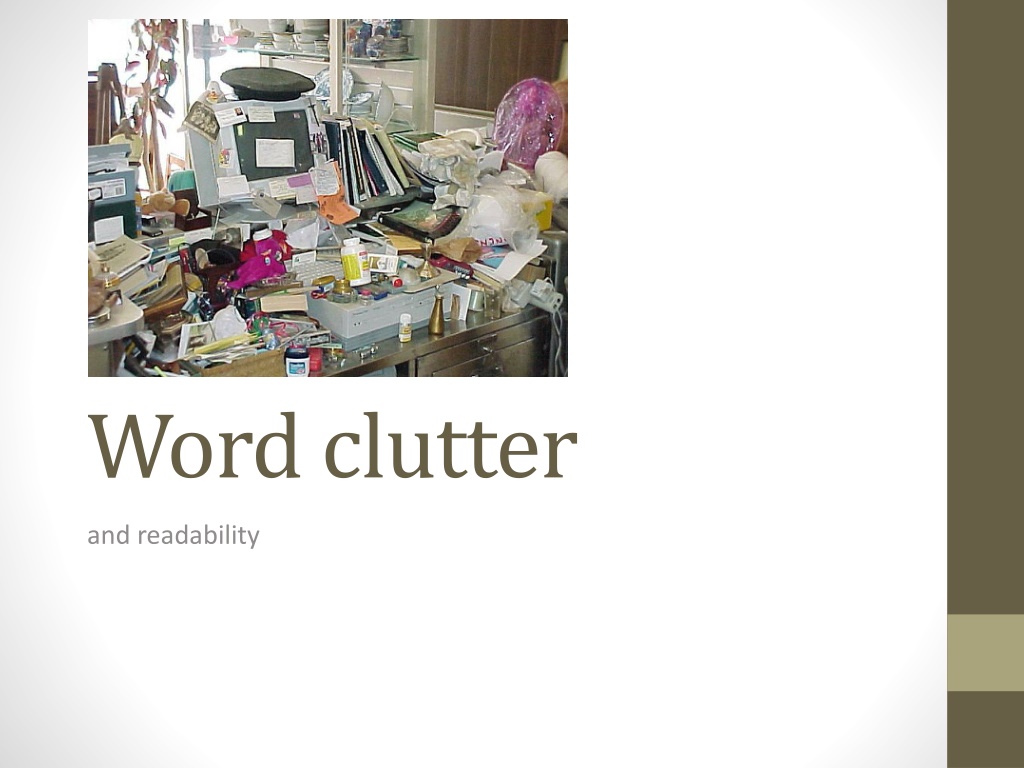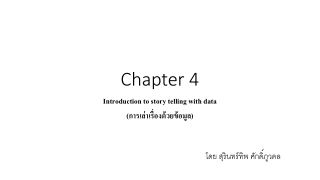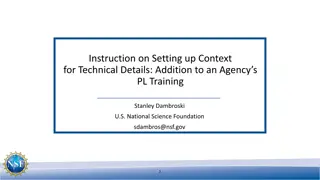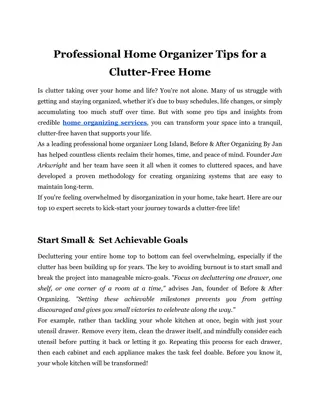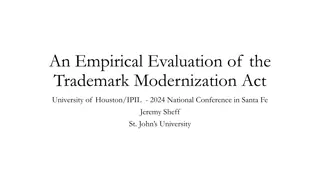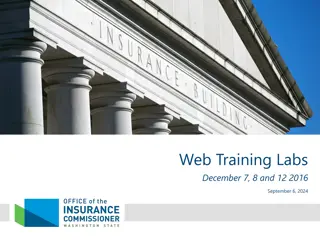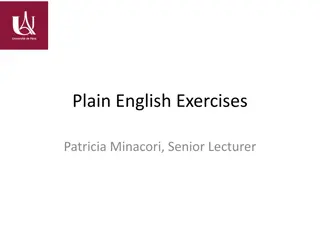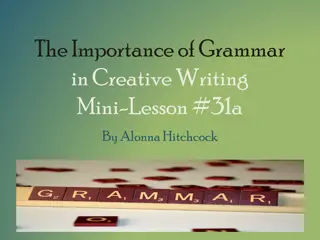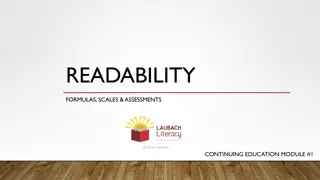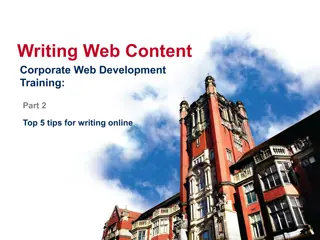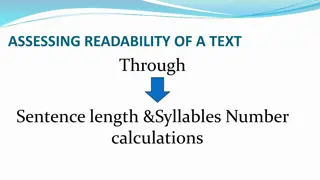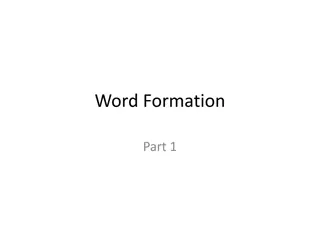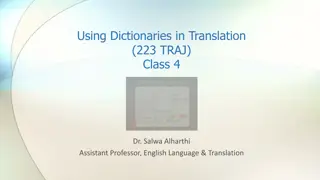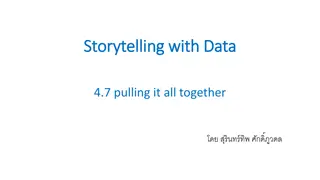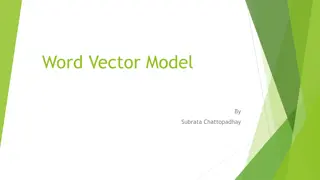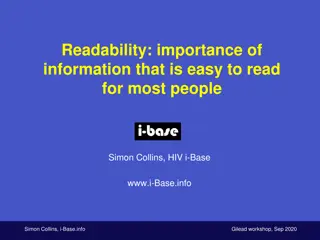Understanding and Eliminating Word Clutter for Better Readability
Clear out unnecessary words to enhance the readability of your writing. Word clutter makes stories harder to read and less engaging. Learn to identify and remove word clutter efficiently. Explore common examples and tips to streamline your writing.
Download Presentation

Please find below an Image/Link to download the presentation.
The content on the website is provided AS IS for your information and personal use only. It may not be sold, licensed, or shared on other websites without obtaining consent from the author. Download presentation by click this link. If you encounter any issues during the download, it is possible that the publisher has removed the file from their server.
E N D
Presentation Transcript
Word clutter and readability
Word clutter Word clutter means using more words than necessary to convey a written message. Why is this bad? It wastes space, of course. But more than that, it makes a story harder to read, and more tedious to get through. Stories in the mass media that are hard to read don t get read.
Word clutter Usually word clutter litters the first drafts of articles. When we go back to edit first drafts, often we can identify the clutter. Unfortunately, writers in a hurry sometimes don t have time to revise. It s up to editors to clear out the deadwood.
Word clutter It takes many years of experience to do a really efficient job at identifying word clutter. For example, the sentence above could be more efficient. How could we rewrite? Answer:
Word clutter We might say this: It takes years of experience to identify word clutter efficiently. It is possible, though, to catch word clutter offenders common in mass-media style writing. Below are some of the most common examples of word clutter in mass media writing.
Word clutter All of a sudden=suddenly. the morning, the evening. Just use a.m. or p.m. Located. This word is usually not necessary. Example: It was located downtown. Just say It was downtown.
More word clutter Due to the fact that. Just say because. A total of. Usually this is not necessary, as are the words in cash. Example: According to police, a total of $500 in cash was found in Hornbacher s parking lot. Just say According to police, $500 was found in Hornbacher s parking lot.
More word clutter At the present time. Just say now. Asked if he.... Usually this clause is redundant. For example: Asked if he plans to run for re-election, the senator responded, I ll run for re-election as long as the voters want me. Just use the quote.
Attributions Note that you don t have to keep repeating he said, she said when it s obvious who s talking. Attributions should be in the same tense throughout the story, either present ( says ) or past ( said ). Past tense in attributions is often used for hard news stories, present tense for features. You may sometimes vary said with words like pointed out or added. Avoid the clumsy attributions commented or stated, unless it truly was a formal statement.
Nominalizations This means taking a verb form and making a noun out of it. (What is a noun? A person, place or thing. What is a verb? An action word.) Mass media writing emphasizes people doing things, and favors active verbs. We want to avoid setting up nominalizations. Two common nominalizations: made a study of, made an investigation of. Just say studied or investigated.
More word clutter Avoid using two words when one suggests the other. Examples: Personal friend=friend. Blue in color=blue. Exact replica. A replica is exact, no need for the repetition. Qualified expert. Why would an expert not be qualified? New record. A record is always new. Completely destroy. Destroy is complete. Otherwise, say damaged. Or that favorite of flight attendants: Be sure to take all of your personal belongings with you. As opposed to your impersonal ones, apparently. Perhaps can leave those for the cleaning people.
Jargon Party, parties, meaning people. This is law enforcement jargon often picked up by mass media. Facility also is jargon, and usually can be substituted with a more specific word. Example: Police said two parties broke into the facility and stole six bottles of Captain Morgan rum. Be specific: Police said two people broke into the liquor store and stole six bottles of Captain Morgan rum.
More extra words At its regular meeting (not their, of course) is usually not necessary when referring to committees or boards. Example: The Fargo City Commission at its regular meeting Tuesday declared a moratorium on bike path construction. Just say, The Fargo City Commission Tuesday declared a moratorium on bike path construction. Have a need for, in need of=need.
Time and date At and on are often superfluous. Example: The campus Phi Kappa Phi chapter will meet at 7:30 p.m. on Tuesday in the Memorial Union Lark Room. Just say, The campus Phi Kappa Phi chapter will meet 7:30 p.m. Tuesday in the Memorial Union Lark Room.
Addresses Usually we can delete the words at the intersection of, because two crossing roads obviously intersect. Example: Police found a stray dog at the intersection of University Drive and 12thAvenue South. Police found a lost dog at University Drive and 12thAvenue South.
More common deadwood Noon luncheon. Just say luncheon; all luncheons are at noon. Detailed information is available upon request at.... Details are available at.... General public. The public is general, so usually no need for that word. Spelling warning: Spell check won t catch the commonly misspelled phrase publically-held. It should be publicly- held. Held. Generally this word isn t necessary. Example: The rally will be held Friday. The rally will be Friday. Useful solution. If it s not useful, it s not a solution.
More common deadwood The incident. Usually not needed. Example: She investigated the incident. (And avoid the nominalization made an investigation of.... ) She investigated. Guest speaker. Just say speaker. If that were the case=If so. At this point in time=now.
Still more common deadwood Which or who often are superfluous. Examples: The book, which is a biography, includes descriptions of White House staff. Just say, The book, a biography . The students who are attending the class must bring pencils. Just say, The students attending the class . As a result of= because.
Does it matter? A small detail, you say not worth bothering about. It is worth bothering about. The game is won or lost on hundreds of small details. Writing improves in the direct ratio to the number of things we can keep out of it that shouldn t be there. --William Zinsser, On Writing Well.
